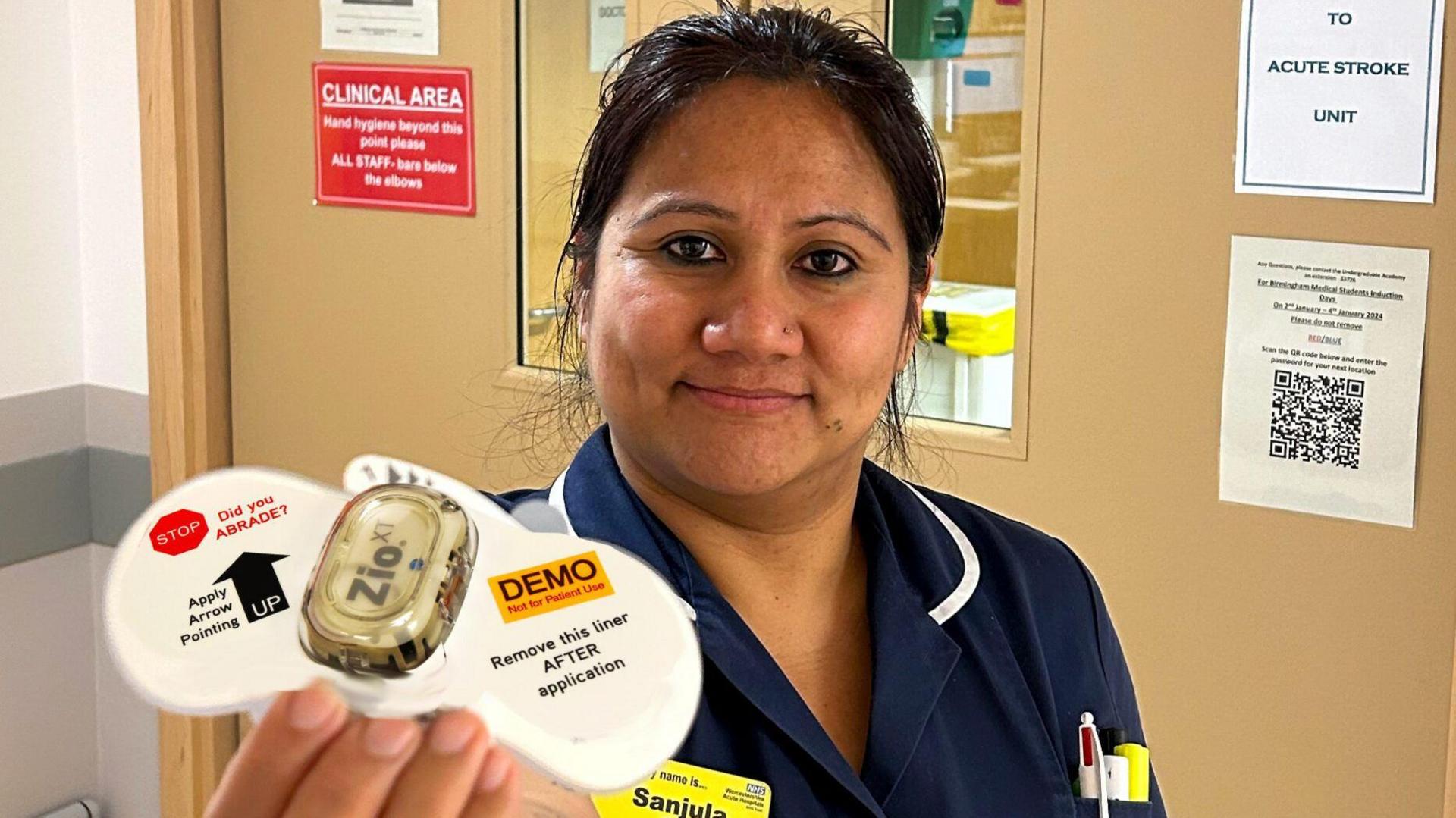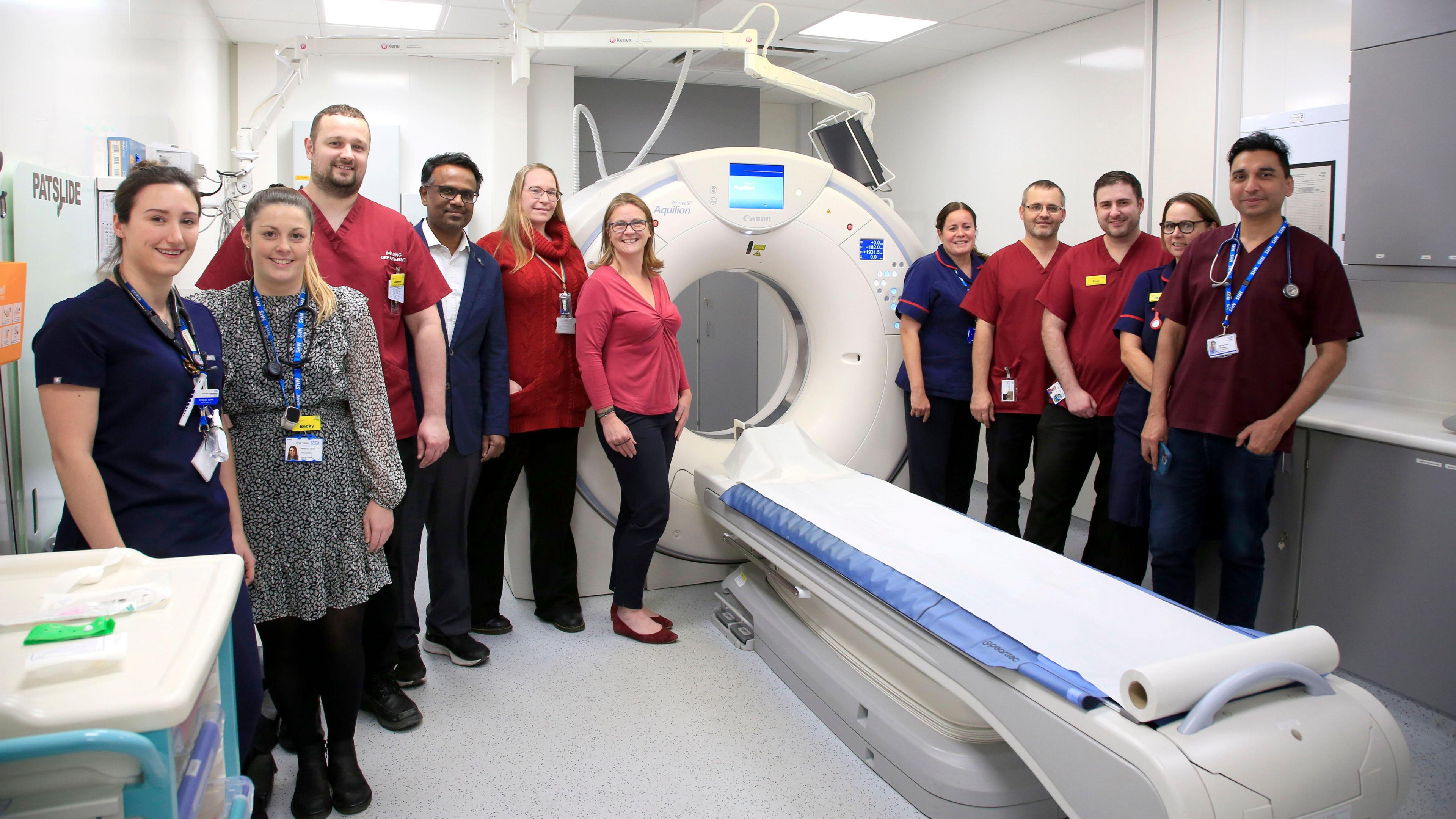Hospital trials device which detects stroke risk

Sanjula Dhungana said the device has helped patients receive their results faster
- Published
A device which can detect the early risk of a stroke is being trialled at a hospital.
A patch, called Zio XT, is worn by stroke patients for up to 14 days to record their heart rhythm and reveal potential causes of a stroke.
More than 100 devices have been fitted at Worcestershire Royal Hospital as part of a six-month trial.
Unlike other devices, patients can exercise and shower with the patch and can remove it without returning to hospital.
The patch can help identify the heart condition Atrial Fibrillation (AF) more accurately by providing data faster, which allows treatment to start sooner.
AF is a heart condition that causes an irregular and often abnormally fast heart rate., external
After patients finish wearing the device, the heart's activity is analysed with AI and overseen by cardiographic technicians.
Dr Girish Muddegowda said the device has reduced waiting times for treatment and reduced duplications of clinic appointments.
Ward manager Sanjula Dhungana said, "It’s really helped us put patients first by getting their results more quickly and accurately."
Follow BBC West Midlands on Facebook, external, X,, external and Instagram, external, Send your story ideas to: newsonline.westmidlands@bbc.co.uk
Related topics
Related Internet Links
- Published6 May 2023

- Published7 December 2023
